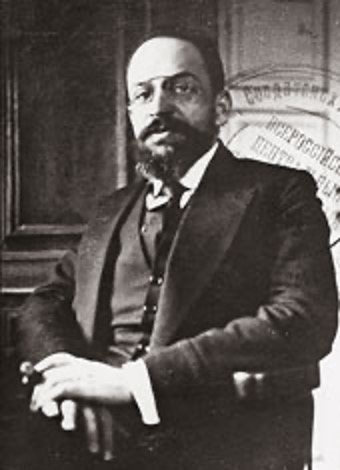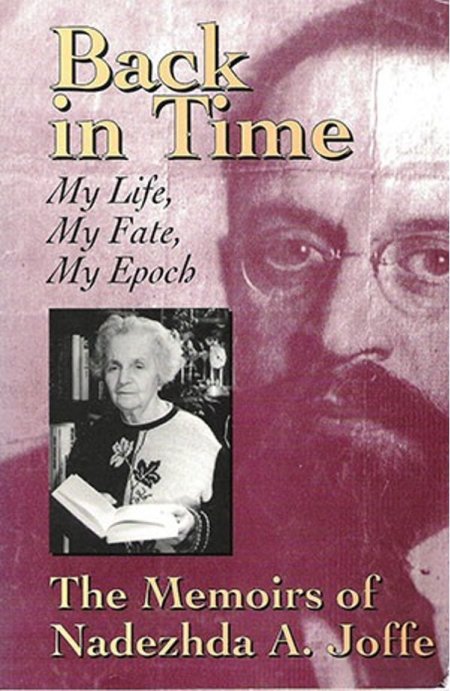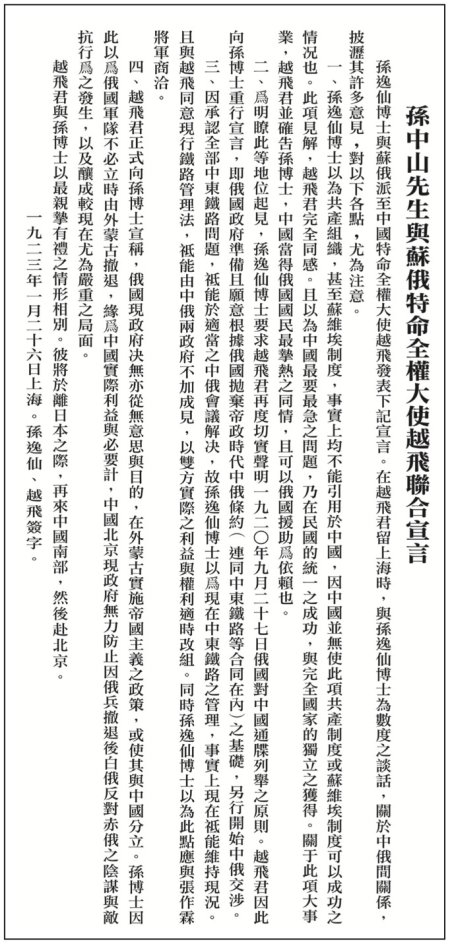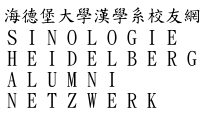Vom Schwarzen Meer zum Gelben Meer: Adolph Joffe (1883-1927)

Vor hundert Jahren wurde der Arzt Adolph Joffe, der vor knapp 140 Jahren geboren wurde, Botschafter in China.
Er stammte aus Simferopol (Krim) und studierte in Deutschland und Österreich. Er interessierte sich – wie auch Klara Blum aus Czernowitz, Manès Sperber aus Ostgalizien und Adolf Storfer – für die Lehren von A. Adler und Sigmund Freud.
Eisenbahnen
Joffes Vater war im Verkehrswesen tätig und so kannte die Familie Finanzminister/Verkehrsminister Sergej Witte (1849-1915), der vorübergehend in Kiew wohnte und später für die Planung des Baus der Transsibirischen Eisenbahn zuständig war. (Witte verhandelte mit Li Hongzhang über die Ostchinesische Eisenbahn.)
A. Joffe wurde offenbar 1912 in Odessa verhaftet und wurde für fünf Jahre nach Sibirien verbannt. Er kannte auch Lenin und Trotzki und war 1917 mit Trotzki in Petersburg/Petrograd aktiv. Er gehörte auch zeitweilig zur Redaktions der Prawda.
China
1922 wurde er nach China geschickt und verhandelte (als Yuefei) mit Sun Yatsen über ein Manifest (Sun Yue lianhe xuanyan), das 1923 bekanntgegeben wurde.
Joffe verhandelte auch in Japan, musste jedoch vorzeitig wegen schlechter Gesundheit in die Heimat zurückkehren. 1924 wurde er dann Botschafter in Österreich.
Im Herbst 1927 beging Joffe wegen gesundheitlicher und politischer Probleme Selbstmord, Trotzki besuchte die Beerdigung und ging selbst später ins Exil. Joffes Frau Maria wurde als „Trotzkistin“ verhaftet, die Tochter Nadezhda konnte später Memoiren veröffentlichen.
Literatur:
Nadezhda Joffe: Back in Time (Zurück in der Zeit: Mein Leben, mein Schicksal, meine Epoche), Oak Park, MI, Labour Publications, 1995, (übersetzt aus dem Russischen).
Dr. Thomas Kampen
PS
“THE AUTHOR OF these memoirs is the daughter of the well-known Bolshevik, Adolf Abramovich Joffe, a good friend of both Lenin and Trotsky. Unfortunately, since the book was written in 1971-72, that is, during the Brezhnev period, it is obvious that Nadezhda Joffe could say little on the politics of her time in the gulags. She is now […] living in New York. It is too bad that she did not update her memoirs, which are largely limited to her terrible struggle to survive and to keep her four daughters alive.
[…]
When Nadezhda speaks of her father’s ordeal leading to his suicide, we get a glimpse of the counterrevolution that was to destroy the Bolshevik Revolution. Like so many Bolsheviks, Adolf Joffe was an idealistic, self-sacrificing socialist who gave his life for the Revolution. When he became ill and needed treatment abroad the early Stalinist regime refused to give him a visa because he was a Left Oppositionist – that is, a supporter of Trotsky. Moreover, the government limited the funds for his treatment in the Soviet Union.
Nadezhda publishes Joffe’s famous letter to Trotsky just before her father’s death in 1927. (The funeral following his suicide occasioned the last public demonstration of the Left Opposition.) It is a moving apologia for his life and the ideals for which he had struggled. Few works on the early period of Bolshevism contain the full document, which remains worth our attention today.
In addition, Nadezhda gives a sympathetic view of Trotsky, which somehow escaped the censors of her day. She writes that Lev Davidovich (Trotsky) "always spoke of Lenin not only with great respect, but with genuine human warmth." As for Stalin, Trotsky seldom referred to him, but when he did so, "it always seemed to be incidentally and with a certain feeling of disgust."
As to why Trotsky "lost the battle" to Stalin, the author writes "that it was precisely this sense of disgust which prevented him from winning" (41) – a bit too simple an explanation, of course.”
The Memoirs of Nadezhda Joffe — Morris Slavin https://www.marxists.org/history/etol/newspape/atc/2214.html
Nadezhda Joffe 1906 – 1999
Nadezhda A Joffe was the daughter of Adolf Abramovich Joffe, a leader of the 1917 October Revolution. He served under Leon Trotsky's leadership on the Military-Revolutionary Committee that overthrew the bourgeois Provisional Government and established the Soviet state. Following the revolution, he was one of its most outstanding international diplomats and formed part of the delegation for peace negotiations at Brest-Litovsk.
Joffe's diplomatic activity carried him to Germany, China and Japan. Along with Trotsky, he was an early opponent of the newly emerging Stalinist bureaucracy in the 1920s. Severely ill and prevented by the Stalin faction from seeking treatment abroad, he committed suicide in November 1927 to protest Trotsky's expulsion from the Communist Party.
A committed socialist, Nadezhda Joffe became a member of the Left Opposition soon after its founding in 1923. Her remarkable memoir Back in Time provides a vivid account of Soviet life during the 1920s and explains why many, like herself, sought to defend its principles.[…]

http://archive.workersliberty.org/wlmags/wl57/joffe.htm


